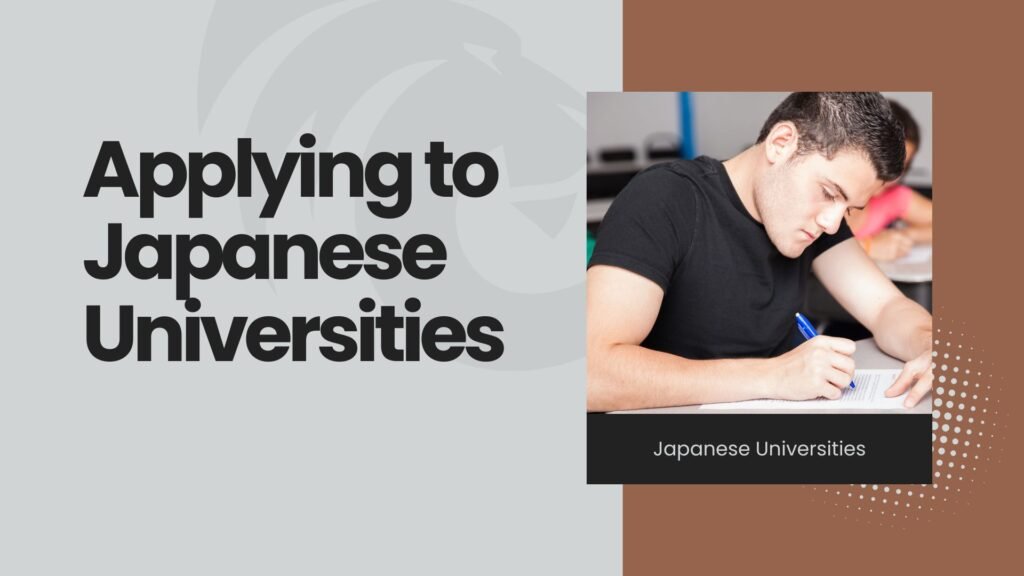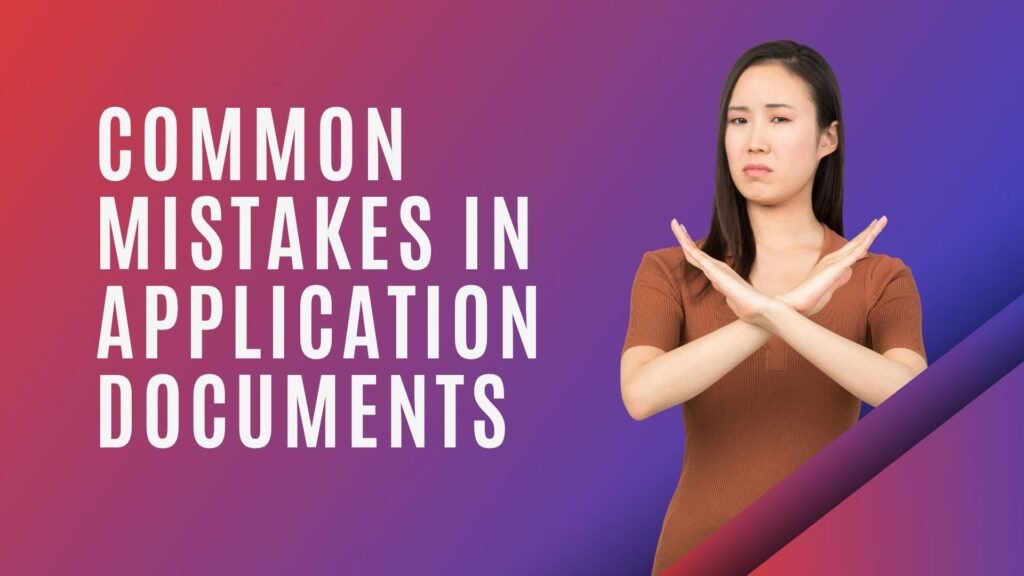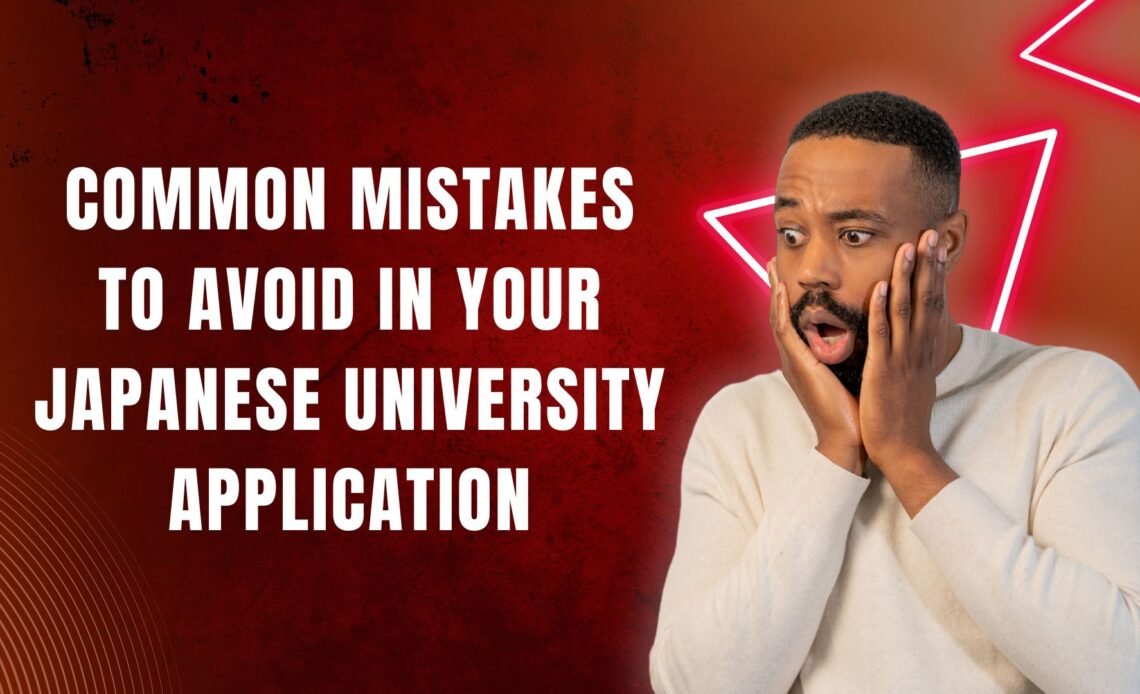Applying to study at a Japanese University Application is a great opportunity to explore high-quality education and experience a unique culture. However, the process can be tricky, especially for first-time applicants. Many Indian students make simple but serious mistakes that affect their chances of getting accepted. These mistakes can include missing application deadlines, submitting incomplete or incorrect forms, or not attaching the right documents like mark sheets or ID proofs.
Another common issue is not preparing for language tests like the JLPT or NAT-TEST, which are often required for admission. Some students also forget to check the university’s specific requirements, such as entrance exams or interviews. Even a small error, like using the wrong format for your photo or forgetting to pay the application fee, can cause delays or rejections.
To avoid these problems, start early, follow all instructions carefully, and double-check your application before submitting. This way, you can improve your chances and start your academic journey in Japan smoothly. Official Website.
Common Mistakes to Avoid When Applying to Japanese Universities
In this article, we will walk you through the most common mistakes to avoid when applying to Japanese universities, ensuring that you put your best foot forward and increase your chances of success. Let’s dive in! Read more.

Applying to Japanese Universities
Understanding the Application Process
Before you begin filling out application forms or drafting your personal statement, it’s essential to fully understand the application process for Japanese universities. Each institution has its own set of eligibility criteria and application procedures, so it’s crucial to research the specific requirements of the university you’re applying to.
Importance of Accurate Information
One of the most frequent mistakes applicants make is providing inaccurate or incomplete information. Japanese universities are highly meticulous about the accuracy of your academic records, personal details, and other key documents. Failing to double-check this information can lead to disqualification or delays in processing your application. Ensure that every detail, from your name to your academic history, is accurate and up-to-date.
Related: Check out our guide on Eligibility Criteria for Japanese Universities to better understand the requirements.
Deadlines and Timelines to Keep in Mind
Missing deadlines is another critical error that can cost you a place at your desired university. Be mindful of application deadlines, entrance exam dates, and submission timelines for documents like recommendation letters and academic transcripts. Missing even a single deadline could result in your application being rejected. Make a checklist with all the important dates and set reminders to stay on top of everything.
External Resource: Visit Japan’s official Ministry of Education for up-to-date information on university deadlines and entrance exams.
Common Mistakes in Application Documents
Your application documents are the backbone of your university application. Any mistakes in these documents can significantly affect your chances of acceptance. Click here.

Common Mistakes in Application Documents
Errors in Personal Statements and Essays
A common mistake in Japanese university applications is writing a personal statement or essay that is either too generic or poorly written. Admissions committees are looking for applicants who demonstrate genuine interest in their chosen field of study and who can express their thoughts clearly. Make sure your personal statement is tailored to the university and program you’re applying to, showcasing your motivations, academic goals, and why you are a good fit for the program.
Related: Learn more about writing a compelling Personal Statement for Japanese University Applications.
Incorrect or Missing Documentation
Another frequent mistake is submitting incorrect or incomplete application documents. This could include failing to provide all required transcripts, recommendation letters, or proof of language proficiency. Ensure that your documents meet the university’s specific requirements, including formatting and any translation needs. Missing one required document could result in a rejected application.
External Resource: Check Japan Study Support for detailed documentation requirements and tips.
Navigating the Interview and Additional Steps
After submitting your application, many Japanese universities require an interview as part of their selection process. This step is an opportunity to further showcase your potential and fit for the program. Click now.
Preparing for the Interview
Some applicants make the mistake of neglecting interview preparation. Interviews for Japanese universities are often a critical part of the decision-making process. You must be prepared to discuss your academic background, your goals, and why you chose Japan for your studies. Lack of preparation could leave a poor impression, so take time to rehearse common questions and practice speaking confidently about your experiences.
Related: Need tips on acing your interview? Check out our guide on Preparing for Japanese University Interviews.
Ignoring Post-Submission Requirements
After submitting your application, universities may require additional documentation, such as proof of financial support or a language proficiency test score. One of the most overlooked mistakes is neglecting these post-submission requirements. It’s important to stay on top of any additional steps required for your application to remain valid and complete.
Other Key Mistakes to Avoid
While the application process, documents, and interview are the primary focus, there are several other mistakes that can hinder your chances of admission.
Overlooking Visa Requirements for Japan
If you are an international student, securing the right visa for Japan is essential. Many applicants overlook the process of obtaining a student visa, which can lead to complications later on. Familiarize yourself with the visa application process and the required documents well in advance to ensure that you can start your studies without delay.
External Resource: The Japanese Embassy offers a comprehensive guide on the student visa process.
Mistakes in Japanese University Entrance Exams
Some universities in Japan require entrance exams, and failing to prepare adequately for these tests can be a major setback. Make sure to study the exam format, focus on areas where you might be weaker, and practice past exam papers. Not adhering to the specific exam guidelines or failing to understand the requirements can result in poor performance or even disqualification.
FAQ:
-
What are the common mistakes in Japanese university applications?
Common mistakes include submitting incomplete or incorrect documents, missing application deadlines, not following university guidelines, making errors in personal statements, and failing to meet the eligibility criteria.
-
How can I avoid missing deadlines in my Japanese university application?
To avoid missing deadlines, create a checklist with all key dates and set reminders for submission deadlines, entrance exam dates, and document submissions. Make sure to submit everything on time to prevent disqualification.
-
What documents are required for a Japanese university application?
Typical documents include application forms, academic transcripts, proof of language proficiency, personal statements or essays, recommendation letters, and sometimes proof of financial support. Be sure to check the specific university’s requirements.
-
How do I write a strong personal statement for my Japanese university application?
A strong personal statement should express your motivations for studying in Japan, your academic goals, why you are a good fit for the program, and what you hope to achieve during your studies. Tailor it to the specific university and program.
-
What should I do if I don’t meet the eligibility criteria for my preferred Japanese university?
If you don’t meet the eligibility criteria, consider applying to universities with more flexible requirements or contact the admissions office to discuss potential alternatives, such as additional exams or qualifications that might help you qualify.
Final Thoughts
Applying to Japanese universities may seem complicated, but avoiding common mistakes can make the process much easier. Many Indian students face delays or rejections due to incomplete forms, incorrect documents, or missing deadlines. It’s essential to double-check everything—from academic transcripts and passport copies to language test results. Also, prepare for interviews and gather any recommendation letters well in advance. Another important step is applying for the correct student visa on time, as delays here can affect your admission. Most universities provide clear instructions on their websites, so make sure to follow them closely. If you’re unsure, consult an education counselor or use trusted online resources like GotoJapanNow. With careful planning and attention to detail, you can navigate the admission process smoothly. Following each step properly not only improves your chances of getting accepted but also sets the tone for a successful academic journey in Japan.


